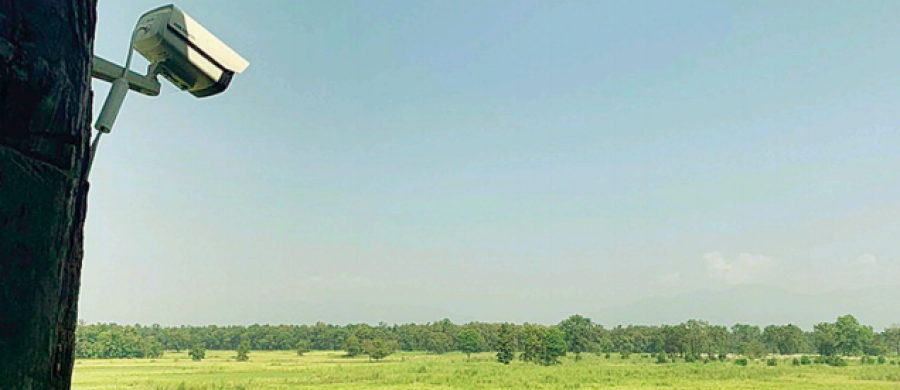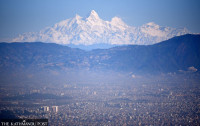Climate & Environment
Wildlife conservation areas report rise in illegal activities during lockdown
As a large number of people from urban areas have returned to their home villages to escape the pandemic and lockdown, cases of trespassing have increased, officials say.
Chandan Kumar Mandal
On Friday, a patrolling team of Bardiya National Park detained two people for illegally fishing in the Karnali River—the habitat of Ganges River dolphins, gharials and other aquatic species.
The team also seized more than two dozen fishing nets of different sizes, boats and fishing rods among other fishing paraphernalia, and nearly 30 kgs of fish.
This is the latest incident of locals illegally entering protected parks.
Although the entire country is under prohibitory orders to check the spread of Covid-19 and people have been ordered not to venture out of their homes, park officials say trespassers continue to pose a threat to the wildlife in protected areas.
As a large number of people from urban areas have returned to their home villages to escape the pandemic, cases of trespassing have increased of late, according to park officials.
“We have been seeing an increase in illegal activities in the park area. As people have no work these days, they are trying to enter the park and engage in illegal activities,” said Ramesh Kumar Yadav, information officer at the Parsa National Park. “We are aware of such activities and take appropriate action.”
According to Yadav, since the second wave of the pandemic, there have been two incidents of locals killing park animals.
In one incident, a group of locals of Manahari Rural Municipality in Makawanpur district were found to have killed a wild boar and divided up the meat among themselves. In another incident, which also took place in the same rural municipality, a barking deer was killed for meat. Likewise, locals entering the park for felling trees have also been witnessed, according to Yadav.
“As these incidents show illegal activities are going on inside the parks and conservation areas,” said Yadav. “On the one hand Bara and Parsa districts are among the districts highly affected by the second wave of the pandemic and on the other hand such illegal activities are happening, so we have a double responsibility of protecting ourselves and the park animals.”
Besides, we regularly come across minor offenders who trespass for collecting fodder, firewood and fiddlehead fern for consumption. Such people are allowed to go with a warning.
In 2020, when the country had gone into a complete lockdown, conservationists had expressed concerns about possible disruption in research activities and rise in poaching and deforestation while warning that long lockdowns could threaten decades of conservation success.
And, as feared such incidents did take place. During months of lockdown last year, hundreds of such incidents were reported in protected parks across the country.
Bardiya National Park had witnessed a massive surge in such illegal incidents. Over 800 individuals were detained for engaging in prohibited activities in the park areas during last year’s lockdown — from March 24 to mid-October.
Their offenses included trespassing, illegal logging, timber smuggling and fishing at unauthorised spots among others. Most of the offenders were fined and released on the same day. However, the park filed around 90 cases for serious offences.
In September last year, a few months after the end of the lockdown, the Chitwan National Park, the country’s most famous protected area, suffered a big shock when poachers shot dead a one-horned rhino, after 1,249 days of zero-poaching at the park.
Chitwan National Park officials are worried this time as well.
According to Ananath Baral, chief conservation officer of the park, illegal activities have gone up of late. “We have seen an increase especially in illegal fishing and trespassing to collect fodder and firewood,” said Baral.
Just last week, park officials detained a dozen individuals inside the park. According to Baral, three were arrested for killing a wild boar and nine with gill nets were arrested for illegal fishing.
“We have been lenient on those who are caught collecting fodder or brushwood. We make them pay small fines or free them with a warning. For serious offenses, we file court cases against the culprits,” said Baral. “In view of the recent illegal activities, we have beefed up security inside the park. Also the Nepal Army patrols the park round-the-clock.”




 16.12°C Kathmandu
16.12°C Kathmandu











